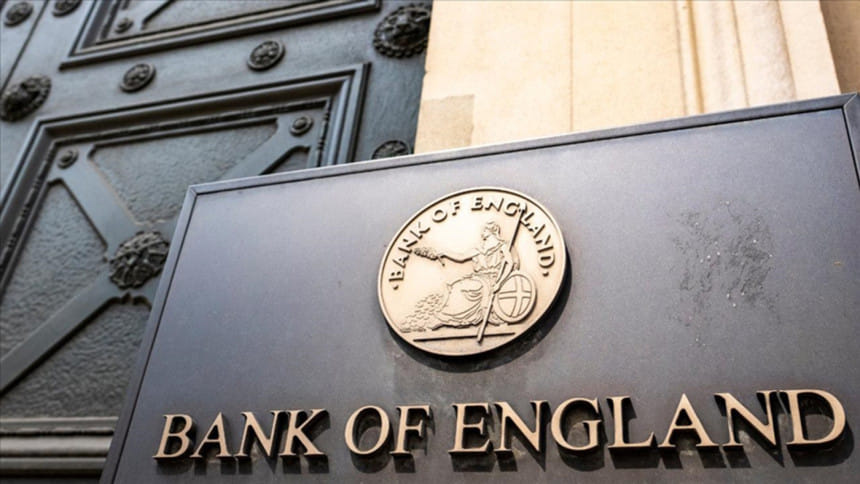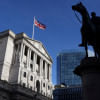Bank of England cuts rate for first time since pandemic

The Bank of England on Thursday cut its main interest rate for the first time since the Covid pandemic broke out in 2020, as British inflation has retreated in recent months.
In a tight 5-4 vote, BoE policymakers agreed to reduce borrowing costs by a quarter-point to 5.0 percent, the central bank announced following a regular meeting.
Governor Andrew Bailey joined four other policymakers in bringing the rate down from a 16-year high, which will ease pressure on borrowers while denting interest earned by savers.
Retail banks tend to mirror the direction of BoE policy when setting their own interest rates.
"Inflationary pressures have eased enough that we've been able to cut interest rates," Bailey said in a short statement. "But we need to make sure inflation stays low, and be careful not to cut interest rates too quickly or by too much."
Fed to follow
Britain's annual inflation rate has returned to the BoE target of two percent.
The US Federal Reserve on Wednesday left its key lending rate unchanged, but noted "some further progress" had been made in bringing inflation down.
Other major central banks, including the European Central Bank, have started to trim rates as gains to prices of global goods and services have largely slowed in recent months.
By contrast, the Bank of Japan on Wednesday hiked borrowing costs for only the second time in 17 years amid a pickup in the country's inflation.
Britain's rate cut comes less than one month after the country elected a new government.
'Ensuring low inflation'
The centre-left Labour administration has vowed to grow the country's economy but has already warned that state spending will be hampered by tight finances.
New finance minister Rachel Reeves on Monday said Britain's state coffers faced an extra £22-billion ($28-billion) hole inherited from the previous Conservative government.
Reeves said the scale of the overspend was "not sustainable", and that not acting was "simply not an option" for her newly-elected government headed by Prime Minister Keir Starmer.
The Conservatives said this indicated tax rises were on the way.
Bailey on Thursday added that "ensuring low and stable inflation is the best thing we can do to support economic growth and the prosperity of the country".
The BoE hiked borrowing costs 14 times between late 2021 -- when they stood at a record-low 0.1 percent -- and the second half of last year.
Its last cut was in March 2020.
Supply-chain disruptions following Covid lockdowns, together with soaring food and energy prices caused by Russia's invasion of Ukraine, sent global inflation surging.
UK annual inflation hit a four-decade high above 11 percent in late 2022.

 For all latest news, follow The Daily Star's Google News channel.
For all latest news, follow The Daily Star's Google News channel. 





Comments